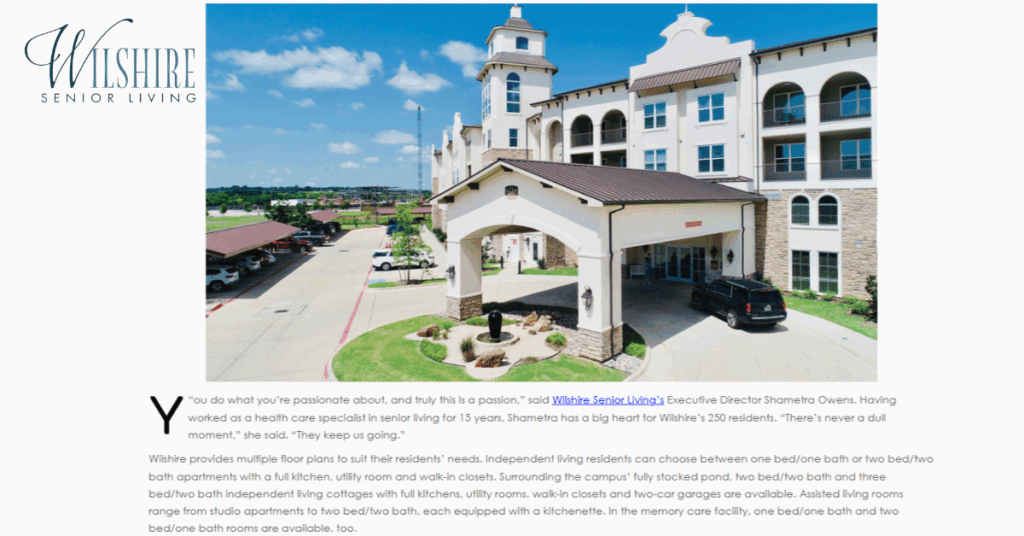Making the decision to find a memory care community for someone you love is never easy. It's a journey filled with emotion and uncertainty. When memory challenges affect daily life,...
Read more
Alzheimer’s Care at Home: Pros & Cons

When a loved one receives an Alzheimer’s diagnosis, families face difficult decisions about their future. As memory and cognitive abilities gradually decline, finding the right approach becomes essential. Many families consider Alzheimer’s care at home as their first option, hoping to maintain familiar routines while managing the disease’s progression. This choice comes with distinct advantages and obstacles that deserve careful consideration.
What is Alzheimer’s Care at Home?
Alzheimer’s care at home means helping someone with memory loss continue living in their own house or apartment. This involves assisting with everyday tasks like getting dressed, taking showers, preparing meals, and keeping track of medications. Family members or hired professionals provide this individualized help, adjusting the level of care offered as the person’s abilities change. Caring for Alzheimer’s at home demands commitment, understanding, and flexibility as symptoms evolve over time.
Pros of Alzheimer’s Care at Home
Comfort and Familiarity
For individuals with dementia, familiar surroundings provide essential support in managing daily life. Alzheimer’s care at home surrounds them with recognizable sights, sounds, and smells that serve as helpful anchoring points. Personal belongings and established routines offer comfort during moments of disorientation. Maintaining established routines through home Alzheimer’s care can slow cognitive decline and improve overall well-being.
Personalized Care
Every person with Alzheimer’s has unique preferences and needs. At home, care partners create highly individualized solutions based on intimate knowledge of their loved one. They understand specific triggers and know which activities bring joy or calm. Morning routines follow lifelong patterns, meals feature favorite foods. Learning how to care for Alzheimer’s at home means developing this personalized approach through observation and continuous adaptation.
Cost
Memory care communities represent a significant financial investment that may not fit every family’s situation. In contrast, Alzheimer’s care at home offers more financial flexibility. Families can start with minimal outside help and increase support gradually. At the same time, home modifications require initial investment; these one-time expenses pale compared to ongoing facility fees. Many families successfully manage Alzheimer’s disease home care during the early stages, preserving financial resources for future needs.
Family Involvement
Providing care within the home keeps families closely connected throughout the journey. Daily interactions create opportunities for meaningful moments – shared laughs over old photos or simply holding hands. This involvement ensures care aligns with family values and cultural preferences. The intimacy of Alzheimer’s care at home often reveals unexpected gifts: moments of clarity or connections through non-verbal communication. Taking care of a parent with dementia strengthens family ties even as roles shift.
Increased Control and Flexibility for Care Partners
Families retain decision-making power over every aspect of daily life when managing care at home. They choose meal times, activity schedules, and daily routines without institutional constraints. The advantages of Alzheimer’s care at home include integrating cultural traditions and personal preferences seamlessly into care routines. This autonomy empowers families to provide care reflecting their loved one’s personality.
Cons of Alzheimer’s Care at Home
Physical and Emotional Toll on Care Partners
Providing round-the-clock memory support requires significant dedication from families. Physical caregiving tasks can be demanding, while nighttime assistance often disrupts sleep patterns. The emotional journey involves adapting to changes in their loved one’s memory and abilities. Care partners sometimes postpone their own self-care while focusing on their loved one’s needs. Maintaining this level of continuous care requires sustained energy, making it important to seek support throughout the journey.
Limited Professional Support
While families excel at providing loving care, they often lack specialized training in dementia management. When choosing Alzheimer’s care at home, accessing expertise requires coordinating multiple providers with long waits between visits. Families may miss early signs of medical complications that trained staff would recognize immediately. Emergency situations require quick thinking and resourcefulness when managing them from home. Without immediate on-site professional support, families must rely on their own judgment while waiting for medical assistance, which can be challenging during critical moments.
Safety and Security Concerns
Maintaining a safe home environment requires thoughtful planning and adjustments. Common household items like kitchen appliances need extra attention as cognitive abilities change. Stairs may require additional safety measures to prevent falls. Some families install door alarms or use identification bracelets to address walking concerns. Even familiar rooms benefit from safety modifications. Research from 2013 showed that 90% of people with dementia in home settings faced safety challenges that weren’t being addressed.
Risk of Social Isolation for Care Partners
The demanding nature of memory care often shrinks care partners’ worlds to home confines. Friends drift away when invitations are repeatedly declined. Hobbies fall by the wayside. Simple pleasures become impossible luxuries when constant supervision is required. The gradual erosion of personal identity creates profound loneliness. This isolation intensifies the challenges and can lead to physical and emotional exhaustion.

Limited Social Interaction for Individuals Living with Dementia
While home provides comfort, it can become isolating for those with memory loss. Opportunities for peer interaction remain scarce. The casual conversations and group activities found in memory care communities don’t exist at home. As symptoms worsen, maintaining friendships becomes difficult. Without regular social stimulation, cognitive decline may accelerate.
Weighing the Decision: Is Alzheimer’s Care at Home the Right Choice?
Making this decision requires an honest assessment of multiple factors. The stage of Alzheimer’s significantly impacts feasibility – early-stage individuals often thrive with minimal support, while advanced stages demand intensive care. Family resources extend beyond finances to include physical health and available time. Some families successfully provide Alzheimer’s care at home for years by building strong support teams. Others recognize early that professional memory care better serves everyone’s needs. Since no cure exists, planning ahead remains crucial. Early discussions about future care preferences help families handle changes with less difficulty. Considering a smooth transition, exploring memory care options before an urgent need arises reduces stress when adjustments become necessary.
If you’re ready to learn more about professional memory care, Wilshire Senior Living Community in Burleson, TX, offers compassionate support for your loved one. Our experienced team specializes in caring for residents with Alzheimer’s and related memory conditions. We focus on creating a safe, comfortable home where each resident receives personalized attention tailored to their unique needs. To discover how Wilshire Senior Living can support your family’s journey, schedule a personal tour and experience our welcoming community yourself.
Related Posts
We’re thrilled to share that Wilshire Senior Living was featured in Now Magazine! The article shines a light on the heart and soul of our community - our residents, our...
Read moreCreating a great memory care environment isn't just about meeting physical caretaking needs. Providing an enriching environment for seniors with memory challenges is an essential part of comprehensive care. Memory...
Read moreRelated Posts
Making the decision to find a memory care community for someone you love is never easy. It's a journey filled with emotion and uncertainty. When memory challenges affect daily life,...
Read moreWe’re thrilled to share that Wilshire Senior Living was featured in Now Magazine! The article shines a light on the heart and soul of our community - our residents, our...
Read moreCreating a great memory care environment isn't just about meeting physical caretaking needs. Providing an enriching environment for seniors with memory challenges is an essential part of comprehensive care. Memory...
Read more



